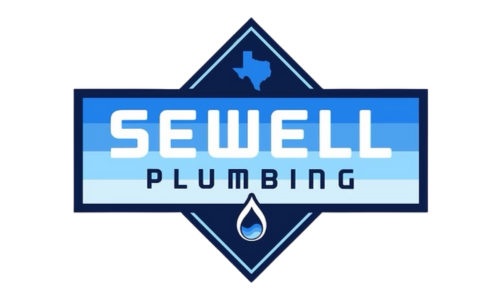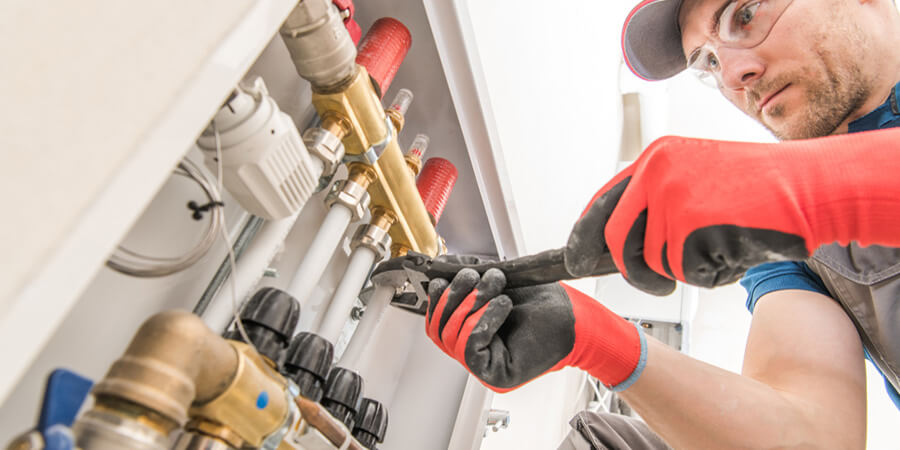Reliable plumbing is the backbone of any commercial establishment. Whether you run a restaurant, office building, or industrial facility, having a dependable commercial plumbing service is essential to maintaining operations smoothly. This comprehensive guide will delve into everything you need to know about commercial plumbing services, from regular maintenance to emergency repairs and advanced technologies.
Understanding Commercial Plumbing
Difference Between Residential and Commercial Plumbing
Commercial plumbing systems are generally more complex than residential ones due to the larger scale and increased usage demands. They must adhere to stricter regulatory requirements and often involve more extensive systems and fixtures designed to handle higher capacities.
Types of Commercial Plumbing Services
Commercial plumbing services encompass a wide range of activities, including installation and upgrades, regular maintenance and inspections, and emergency repairs. Each service is crucial to ensuring the plumbing system functions efficiently and meets all regulatory standards.
Common Plumbing Issues in Commercial Buildings
Leaks and pipe bursts clogged drains and toilets, and water pressure problems are some of the most common issues in commercial buildings. These problems can disrupt business operations and lead to costly repairs if not addressed promptly.
Importance of Regular Maintenance
Benefits of Regular Maintenance
Regular maintenance of commercial plumbing systems can prevent major issues, extend the lifespan of the plumbing infrastructure, and ensure regulatory compliance. It helps in identifying potential problems early and mitigating them before they escalate.
Key Maintenance Tasks
Key maintenance tasks include inspecting pipes and fixtures, cleaning drains and sewer lines, and checking water heaters and boilers. These tasks ensure that all components of the plumbing system are in good working condition and reduce the risk of unexpected failures.
Creating a Maintenance Schedule
Creating a maintenance schedule involves determining the frequency of inspections, planning seasonal maintenance tasks, and keeping detailed records. A well-planned schedule ensures that all maintenance tasks are performed on time and helps in tracking the system’s condition over time.
Choosing the Right Commercial Plumbing Service
Qualities to Look For
When selecting a commercial plumbing service, look for experience and expertise, proper licenses and certifications, and positive customer reviews and testimonials. These qualities ensure that the service provider is reliable and capable of handling complex plumbing issues.
Questions to Ask Potential Plumbers
Before hiring a plumber, ask about their availability and response time, service guarantees and warranties, and pricing and payment options. These questions help in understanding the plumber’s reliability and the quality of their service.
Comparing Quotes and Proposals
Comparing quotes involves looking at the detailed breakdown of costs, understanding the scope of work, and evaluating the value for money. This ensures that you get the best possible service at a reasonable price.
Installation and Upgrades
Installing New Plumbing Systems
Installing new plumbing systems requires careful planning and design considerations, choosing the right materials, and ensuring code compliance. Proper installation is crucial to the system’s long-term performance and reliability.
Upgrading Existing Systems
Upgrading existing plumbing systems involves identifying outdated components, understanding the benefits of modern plumbing technology, and minimizing downtime during upgrades. Upgrades can improve efficiency, reduce water and energy consumption, and enhance the system’s durability.
Energy-Efficient Plumbing Solutions
Energy-efficient plumbing solutions include installing low-flow fixtures and faucets, high-efficiency water heaters, and smart plumbing systems. These solutions help reduce utility bills and support environmental sustainability.
Emergency Plumbing Services
Common Plumbing Emergencies
Common plumbing emergencies in commercial settings include burst pipes and major leaks, sewer backups, and lack of hot water. These issues require immediate attention to prevent extensive damage and operational disruptions.
Immediate Steps to Take
In case of a plumbing emergency, shut off the water supply, contain the damage as much as possible, and call a professional plumber immediately. Quick action can significantly reduce the impact of the emergency.
Preventing Future Emergencies
Preventing future plumbing emergencies involves regular inspections and maintenance, installing leak detection systems, and educating staff on emergency protocols. These measures help in identifying potential issues early and taking preventive actions.
Water Conservation Strategies
Benefits of Water Conservation
Water conservation in commercial settings reduces utility bills, supports environmental sustainability, and enhances corporate social responsibility. Efficient water use also ensures compliance with regulations and helps in building a positive brand image.
Implementing Water-Saving Measures
Implementing water-saving measures involves installing water-efficient fixtures, monitoring water usage, and fixing leaks promptly. These actions can lead to significant water and cost savings over time.
Innovative Water-Saving Technologies
Innovative water-saving technologies include greywater recycling systems, rainwater harvesting, and smart irrigation systems. These technologies provide sustainable solutions for water management in commercial buildings.
Plumbing System Inspections
Components of a Thorough Inspection
A thorough plumbing system inspection includes checking for leaks and corrosion, testing water pressure and flow, and inspecting drainage and sewer lines. Regular inspections help maintain the system’s efficiency and prevent unexpected failures.
Tools and Techniques Used
Tools and techniques used in plumbing inspections include video camera inspections, hydrostatic pressure testing, and dye testing for leaks. These methods provide accurate diagnostics and help in identifying hidden issues.
Interpreting Inspection Results
Interpreting inspection results involves identifying urgent repairs, planning for future maintenance, and providing a detailed report. This information helps in making informed decisions about the plumbing system’s upkeep.
Sewer and Drain Cleaning
Importance of Clean Drains and Sewers
Clean drains and sewers prevent clogs and backups, maintain sanitary conditions, and prolong the life of the plumbing system. Regular cleaning is essential to keep the system functioning smoothly.
Methods of Cleaning
Common methods of sewer and drain cleaning include hydro-jetting, drain snaking, and chemical treatments. Each method is effective for different types of clogs and blockages.
Signs You Need Professional Cleaning
Signs that you need professional sewer and drain cleaning include slow draining sinks and toilets, foul odors, and frequent clogs. Addressing these signs early can prevent more severe plumbing issues.
Pipe Repair and Replacement
Common Causes of Pipe Damage
Common causes of pipe damage include corrosion and rust, freezing and thawing cycles, and physical damage from construction. Understanding these causes helps in taking preventive measures.
Pipe Repair Techniques
Pipe repair techniques include epoxy pipe lining, pipe bursting, and traditional pipe replacement. Each technique has its advantages and is suitable for different situations.
Choosing the Right Material for Replacement
Choosing the right material for pipe replacement involves comparing options like copper, PEX, and PVC. Consider durability, cost, and compliance with local codes when making a decision.
Backflow Prevention
Understanding Backflow and Its Risks
Backflow occurs when contaminated water flows back into the clean water supply, posing health and safety hazards. It’s essential to understand the causes of backflow and the associated risks.
Installing Backflow Preventers
Installing backflow preventers involves selecting the right device, following the proper installation process, and ensuring the system is tested and maintained regularly. These devices are crucial for protecting the water supply.
Maintaining Backflow Prevention Systems
Maintaining backflow prevention systems includes regular testing and certification, identifying and fixing issues promptly, and keeping records of inspections. Proper maintenance ensures the system’s reliability.
Hot Water Systems in Commercial Buildings
Types of Hot Water Systems
Types of hot water systems in commercial buildings include tankless water heaters, storage tank water heaters, and boiler systems. Each type has its benefits and is suitable for different applications.
Choosing the Right System
Choosing the right hot water system involves assessing hot water demand, considering energy efficiency, and evaluating space and installation requirements. The right system meets the building’s needs effectively.
Maintenance and Troubleshooting
Maintaining hot water systems includes regular flushing and descaling, checking for leaks and pressure issues, and scheduling professional inspections. Proper maintenance ensures the system’s longevity and efficiency.
The Role of Technology in Modern Plumbing
Smart Plumbing Systems
Smart plumbing systems feature advanced technology for monitoring and controlling water usage. Examples include smart faucets, leak detectors, and water monitoring systems. These systems improve efficiency and provide valuable data.
Remote Monitoring and Diagnostics
Remote monitoring and diagnostics offer benefits like real-time data, early detection of issues, and prompt responses to alerts. Commonly monitored parameters include water pressure, flow rates, and temperature.
Future Trends in Plumbing Technology
Future trends in plumbing technology include advancements in materials, emerging water-saving technologies, and predictive maintenance tools. These innovations are set to transform the plumbing industry.
FAQs
- What should I look for in a commercial plumbing service?
Key qualities include experience, certifications, and positive customer reviews.
- How often should commercial plumbing systems be inspected?
Recommended inspection frequency is at least annually, with additional seasonal checks.
- What are the most common plumbing issues in commercial buildings?
Common problems include leaks, clogged drains, and water pressure issues.
- How can I prevent plumbing emergencies?
Regular maintenance, installing leak detection systems, and educating staff can help prevent emergencies.
- What are the benefits of upgrading plumbing systems?
Benefits include improved efficiency, reduced water and energy consumption, and enhanced durability.
- How do I choose the right hot water system for my business?
Consider hot water demand, energy efficiency, and installation requirements.
- What are the signs that I need professional drain cleaning?
Indicators include slow-draining sinks, foul odors, and frequent clogs.
- How does backflow prevention work?
Backflow prevention devices prevent contaminated water from flowing back into the clean water supply.
- What are the best water conservation strategies for businesses?
Effective strategies include installing water-efficient fixtures, monitoring usage, and fixing leaks promptly.
- How can technology improve plumbing maintenance?
Smart plumbing systems and remote monitoring provide real-time data and early detection of issues.
Conclusion
Reliable commercial plumbing service is essential for maintaining the efficiency and safety of your building’s plumbing system. Investing in regular maintenance, timely repairs, and modern upgrades can prevent costly issues and ensure smooth operations. By choosing the right commercial plumbing service provider, you can rest assured that your plumbing needs will be handled professionally and effectively.







